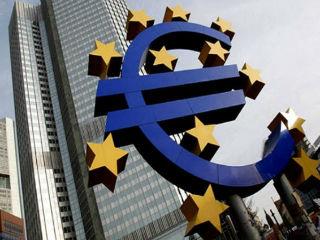The supreme audit institutions of five European countries (Germany, Cyprus, Finland, Austria and the Netherlands) conclude in a joint report that there is a growing audit gap in the public supervision of banks in the eurozone

The European Commission concluded from an evaluation of the ECB’s banking supervision in October that the European Court of Auditors had less power to audit the ECB than many eurozone audit institutions had to audit their national public supervisors. The national public supervisor is usually the central bank; in the Netherlands it is De Nederlandsche Bank (DNB). The European Commission therefore insisted that the European Court of Auditors and the ECB should reach an agreement on the exchange of information. The five supreme audit institutions consider this to be a ’first step’. ’But ultimately the European Court of Auditors’ mandate in this area needs to be extended.’ They suggest that the European Court of Auditors’ powers should be equal to the mandates that the eurozone audit institutions, such as the Algemene Rekenkamer in the Netherlands and the Bundesrechnungshof in Germany, had to audit their national supervisors before 2014.
by N. Peter Kramer
Their conclusion is endorsed by all supreme audit institutions in the eurozone.
The gap came into being in 2014, when the European Central Bank (ECB) was made responsible for the supervision of significant banks in the eurozone in order to prevent the reoccurrence of a major banking crisis such as that in 2008. The European Court of Auditors, however, was not given the attendant powers to audit the ECB's supervision of significant banks.
The European Commission concluded from an evaluation of the ECB's banking supervision in October that the European Court of Auditors had less power to audit the ECB than many eurozone audit institutions had to audit their national public supervisors. The national public supervisor is usually the central bank; in the Netherlands it is De Nederlandsche Bank (DNB). The European Commission therefore insisted that the European Court of Auditors and the ECB should reach an agreement on the exchange of information. The five supreme audit institutions consider this to be a 'first step'. 'But ultimately the European Court of Auditors' mandate in this area needs to be extended.' They suggest that the European Court of Auditors' powers should be equal to the mandates that the eurozone audit institutions, such as the Algemene Rekenkamer in the Netherlands and the Bundesrechnungshof in Germany, had to audit their national supervisors before 2014.
The five audit institutions found that they too were losing ground to audit the national supervisors' public supervision of small and medium-sized banks in their home countries. Their requests to inspect documents were increasingly being denied because the supervisors were increasingly having to work in accordance with the European Central Bank's methods and techniques. The ECB claims the information obtained by means of these methods and techniques is confidential and therefore cannot be disclosed to supreme audit institutions in the member states. The five supreme audit institutions warn in the report that 'this new gap in the audit of supervision will continue to grow'. They note that more and more methods and techniques are being harmonised.
Practice differs from country to country
The five supreme audit institutions also looked at the differences in the organisation and conduct of banking supervision in each country. The report observes that EU rules on banking supervision are complex and constantly changing, and that they cannot be transposed unequivocally into national law. Partly as a result of this, banking supervision is organised and conducted in different ways.







